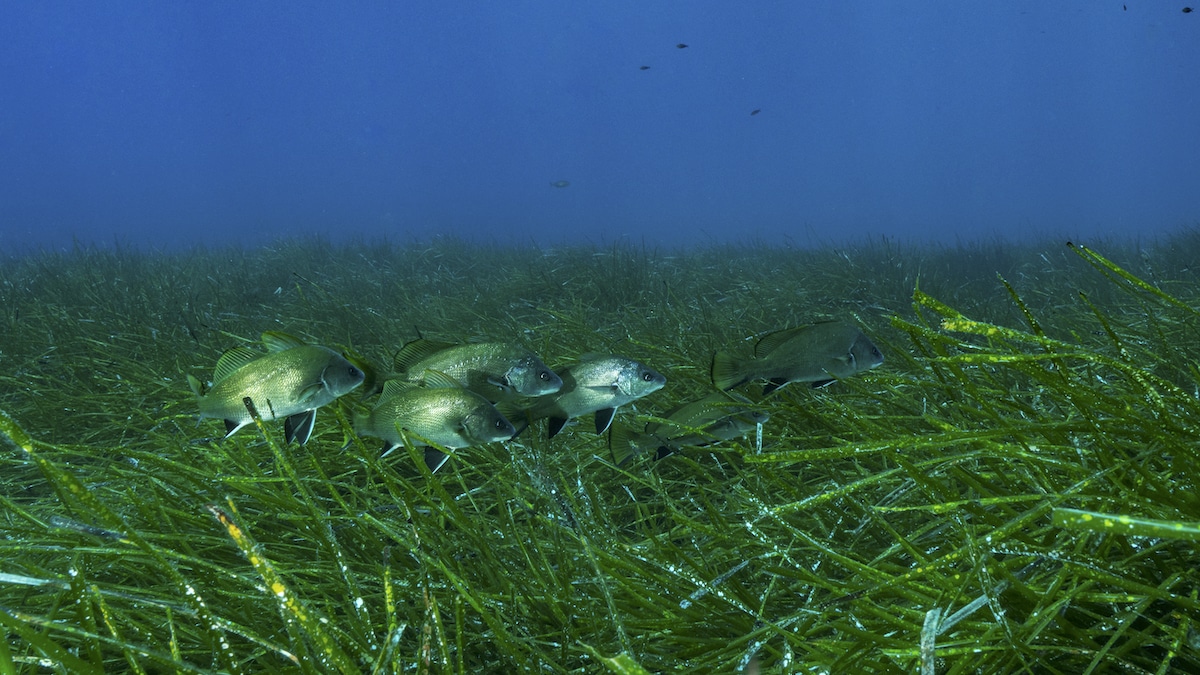Sunscreen Chemicals Accumulate in Mediterranean Seagrass, Study Finds

 Why you can trust us
Why you can trust us
Founded in 2005 as an Ohio-based environmental newspaper, EcoWatch is a digital platform dedicated to publishing quality, science-based content on environmental issues, causes, and solutions.
A new study has found that chemicals in sunscreen are building up in Mediterranean seagrass, namely Posidonia oceanica, a seagrass native to the region.
Posidonia oceanica forms large meadows along the seabeds of the Mediterranean, and although researchers have known about sunscreen chemicals impacting the marine life, there wasn’t much research about the UV filters from sunscreens in seagrass or how these chemicals impact the seagrass.
In fact, a separate 2020 study addressed the more than 267 million tourists that come to the Mediterranean Sea each year and the “potential impact that the use and dumping of sunscreen components has in the Mediterranean Sea and the toxic effects of these components on its local marine biota (e.g. Paracentrotus lividus and Mytilus galloprovincialis), highlighting the lack of information on emblematic endangered species such as the seagrass Posidonia oceanica.”
Now, new research published in the Marine Pollution Bulletin shows an accumulation of UV filters from sunscreens in the stems of Posidonia oceanica.
“This marine enclave is impacted by port activities, water discharge and tourism,” Silvia Díaz Cruz, co-author of the study, told The Guardian. “Since the Mediterranean Sea is shallow, small and very enclosed, concentrations of UV-absorbing chemicals can reach high [levels].”
The researchers found chemicals such as oxybenzone (BP3), 4-methylbenzylidene camphor (4-MBC) and methyl paraben, all of which are popular sunscreen chemicals but are not considered reef-safe, according to Save the Reef.
Seagrass is an important carbon sink. It also provides habitat for other marine life and can offer more protection against coastal erosion. There is more research needed to determine how this chemical buildup will impact the seagrass.
“If we find that sunscreens affect the photosynthesis and productivity of seagrasses beyond accumulation, we will have a problem since these seagrasses play important ecological roles in the Mediterranean coasts,” co-author Nona Agawin said, as reported by The Guardian. “If we find which sunscreen components are harmful for seagrasses, then we should better regulate and provide alternatives to protect the beach-goers and also the seagrasses.”
In corals, these chemicals can change the coral DNA and may lead to bleaching or death. Sunscreen chemicals have also been found to disrupt the reproductive systems and development of various marine animals, including crustaceans, dolphins, fish, sea turtles and phytoplankton.
“Clearly, now that we know that the key component of Mediterranean coastal ecosystems, P. oceanica accumulates UVFs in their tissues, there should be more experimental studies done on their effects and check if we should follow suit to prohibit certain UVFs to protect this species as what has been done in other regions to protect corals,” the study concluded.
Subscribe to get exclusive updates in our daily newsletter!
By signing up, you agree to the Terms of Use and Privacy Policy & to receive electronic communications from EcoWatch Media Group, which may include marketing promotions, advertisements and sponsored content.

 233k
233k  41k
41k  Subscribe
Subscribe 




